WENHAM, Mass. — It was the first night of a preseason training camp at a retreat in the Adirondack Mountains for the Gordon College cross-country teams.
Dinner dishes were cleared. Runners gathered in one large room. Normally, this would be the time for one of the captains to share a personal story, following the example set by Coach Patrick Rich the previous evening back on campus.
Instead, it was an 18-year-old freshman from Falmouth who took the lead.
Abbey Mitchell looked around at the unfamiliar faces and tried not to appear nervous. Six months earlier, the possibility of competing in college athletics had seemed absurd.
“I have cystic fibrosis,” she said.
The room got quiet. It’s a disease, she explained, that primarily affects the lungs and the digestive system. When she catches a cold, it takes her longer to recover than most people.
She paused.
“I don’t let it stop me from doing anything.”
About 30,000 children and adults in the United States have the genetic disorder, according to the Cystic Fibrosis Foundation. In the United States, it strikes once in about 3,500 births.
Very few of those babies grow up to become college athletes.
Because of a defective gene and its protein product, patients with cystic fibrosis develop thick, sticky mucus in their lungs that can clog airways, inhibit breathing and lead to bacterial infections that may require hospital stays and can permanently damage lung tissue. Pancreatic mucus interferes with natural enzymes that help break down and absorb food.
Common symptoms include persistent coughs, wheezing, shortness of breath and stunted growth. Some patients, Mitchell included, develop cystic fibrosis-related diabetes.
In the 1950s, according to the Cystic Fibrosis Foundation, few children with the disease lived to attend elementary school. Not until 1962 did the predicted median survival age reach 10.
Over the past quarter-century, however, new treatments, better drugs (inhaled antibiotics, medications to thin mucus) and an increasing emphasis on exercise have helped to extend life spans and improve the quality of life for those with cystic fibrosis. More than half of those with the disease in the U.S. are now older than 18. The predicted median survival age rose from 28 in 1992 to 31 in 2002 to 41 in 2012, according to the Cystic Fibrosis Foundation’s National Registry of Patients.
“It used to be that the adult population was much smaller than the pediatric population,” said Mary Ellen Corrigan, a nurse practitioner for Maine Medical Center’s Cystic Fibrosis Center. “Now we have about 150 kids and close to 150 adults in Maine (with cystic fibrosis).”
Dr. Jonathan Zuckerman, director of the adult cystic fibrosis program at Maine Med, said some of his patients are close to retirement age. In 2012, the oldest person with cystic fibrosis in the national registry was 82.
“We’re seeing more and more people who are not looking like CF patients,” he said. “They’re looking like athletes, which is exciting.”
A DEMANDING DISEASE
Mitchell was born in 1996, when nearly every medical journal dealing with cystic fibrosis called it “the most common fatal genetic disease in the Caucasian population.”
Thanks to new therapies, “we’re calling this a life-shortening disease rather than a fatal disease,” Zuckerman said. “We don’t know what the life expectancy will be in 10 years because the new therapies are so successful.”
In Canada, where roughly 5,000 patients are in the national registry, the median survival age has risen to 50.
Mitchell was diagnosed at 22 months, so she doesn’t remember life without the disease and all the attention it demands. In addition to attending classes and cross-country practice, she also requires about two hours of treatment each day involving nebulizers, medications and a special vibrating vest that helps shake loose mucus from her lungs. She also has to wash all the medical equipment she uses each day and let it dry.
How she fits everything in, while maintaining her wry sense of humor and pleasant disposition, continues to impress her new teammates at Gordon, a Christian liberal arts college located on Boston’s North Shore.
“It’s amazing to me that she’s even here, away from home,” said senior co-captain Jessie Fittro. “I had a hard enough time leaving home for college without having this other form of independence that she has to develop in a huge way.”
Mitchell is not a token member of the team, a charitable afterthought. She makes all the practices, completes all the workouts, and does it all without complaint. In each of her five races she has been faster than dozens of other NCAA Division III runners, and she has never finished last among Gordon runners.
“And she’s getting better,” Fittro said. “It’s so exciting to see. I feel like it’s a celebration when you get better as a runner anyway. We’re all so proud of her.”
It was Fittro who interrupted Mitchell’s training camp talk, who sensed the freshman’s uncertainty and apprehension and walked in with arms wide for an embrace of welcome and acceptance.
“It was kind of a struggle (for her) to get it out, to explain it to us,” Fittro said. “It was probably a very awkward setup for her, all these people she didn’t know. I just was awed by her bravery.”
Afterward, while the rest of the team went into town for ice cream, Fittro stayed behind with Mitchell during her evening treatment. Mitchell buckled up her vest and hooked up the tubes while Fittro read aloud to her from the Book of Psalms.
On one of the team’s first long runs back on campus, Mitchell began coughing and had to stop in the woods. Fittro stopped with her.
“She was determined,” Fittro said. “She was going to finish that run. We stopped for maybe two minutes. She cried. I said, ‘What do you want, Abbey?’ She said, ‘I want to keep running.’ ”
After a moment, they resumed running.
“The whole way back, you know she’s in pain, you know she’s struggling,” Fittro said. “But she’s doing it.”
Rich, the head coach at Gordon, said Mitchell is a legitimate competitor, not a special case.
“The fact that she’s right there in the middle of the pack makes it even more exciting,” he said. “Knowing her backstory makes it that much more emotional when I see her coming in a Gordon uniform.”
SOMETHING CLICKED
Mitchell’s parents, Doug and Ramona Mitchell, encouraged their daughter to be active when she was young. At first she was a reluctant runner.
“They wanted me to do a sport because it’s so good for my lungs,” Abbey said. “I didn’t take it that seriously at first.”
She continued to plod along through middle school and the early years of high school in Falmouth, more to please them than anything else. As a junior, however, something clicked. Abbey decided she “really needed to push through and reap the benefits of my running,” and cut her race time on the 5-kilometer cross-country course from 38 minutes to below 27.
“It was quite a struggle, but she made it through,” said Ramona Mitchell. “It’s hard to come in last, but she stuck with it.”
Running wasn’t her only high school sport. She added Nordic skiing in winter and ultimate Frisbee in spring.
Nothing came easily, and seasons could get interrupted by illness or hospital stays. Even so, she wound up being named a captain in both cross-country and ultimate.
One of her high school coaches, Jorma Kurry, said Mitchell is “mentally tougher than 99 percent of the people I have met.”
In the spring of her senior year, after Abbey had chosen Gordon for college, Kurry and fellow Falmouth cross-country coach Danny Paul encouraged her to check with Gordon’s cross-country coach, if only to see whether she could tag along for an occasional workout.
Rich, however, didn’t want an occasional runner. If Mitchell would truly commit to the team, he would welcome her.
“I knew that if I joined the team, I’d be more motivated to run consistently than if I didn’t,” Mitchell said. “I’d probably still be running, but not as intensely. And running intensely is better for my health.”
For the first time in her life, Mitchell was running twice a day. Her workouts became tougher. In her first collegiate meet in late August, she beat her best high school time with a 26:24 and followed that up two weeks later with a 24:13 on a sunny Saturday at the University of New England in Biddeford. That’s a 7:48 mile pace, and was good enough for 83rd among a field of 140.
“She’s done outstandingly well,” Rich said. “I think she’s even surprised herself. She’s been faster than she was in high school, so she’s really continued to improve. I think with a degenerative disease, that’s probably pretty exceptional.”
Gordon’s cross-country season came to a close Saturday, with a regional championship meet that included only the team’s top seven competitors. Still, Mitchell isn’t putting away her running shoes. She plans on doing both indoor and outdoor track. Rich calls her the model Division III student-athlete.
“She runs because it’s something she enjoys and she wants to do it,” he said. “If I have a whole team like that, then that’s a successful team. I don’t have to twist anyone’s arm to get through a workout. I never have to tell her to ‘man up’ or ‘push through.’ She’s self-motivated, and that’s infectious.”
Infectious and inspiring. Not of the “Let’s run for Abbey” schmaltz, Rich said. It’s more like a daily dose of perspective.
“Anytime they’re having a hard time,” he said of his other runners, “they think how much harder it must be for Abbey to endure the same kind of work that they’re doing. I think that’s going to help the team and bless the team to have her as a part of what we’re doing.”
‘INCREDIBLY ISOLATING’
Mitchell also is a role model for others with cystic fibrosis, who, because of concern about spreading or catching germs, tend to stay away from one another. Dr. Colby Wyatt, a pediatric pulmonologist with Maine Med, said normal protocol for families who have a child diagnosed with a serious illness is to put them in touch with a support group so they can learn from other families dealing with the same issue.
Cystic fibrosis isn’t like that.
“It’s unique in the realm of chronic illnesses that you can’t be around other people,” he said. “That’s incredibly isolating.”
Social media has helped bring cystic fibrosis families and patients closer together. Athletics, particularly team sports, provides another support group, one that can be particularly helpful for a cystic fibrosis patient used to relying on parents to manage treatment.
“I would love it if all my patients did distance running,” Wyatt said. “There’s physical benefits, mental health benefits and social benefits.”
The transition from high school to college will always have a few glitches. For Mitchell, the adjustment period also included figuring out the timing of her medications, her sleep schedule and managing a restrictive diet. Dining services at the school opened their pantries to her so she could read labels for ingredients she needs to avoid.
Although she wanted a roommate, the school instead provided her with a single room, considering her medical equipment and particular needs. She started the year with three classes – history, Old Testament and a seminar-style course called The Great Conversation – and recently picked up a fourth, an outdoor physical education requirement.
Languages are of interest to her. Her long-term plans are, like most first-year college students, in flux. There is, however, a short-term goal.
“At some point next year,” she said, “if I’m in good health, I would like to run a half-marathon.”
Rich, who admitted to having a few reservations when initially learning of Mitchell’s condition, now looks forward to another 3½ years with a determined, highly motivated athlete. Truth be told, he often worries more about his other runners than about Mitchell.
He has runners dealing with injuries, first-year students struggling more with the adjustment to college life, people who have reservations about training and competing.
“So she’s pretty low on the immediate needs,” he said.
Besides, he said, she’s pretty quiet.
“She’s not one to vocalize her struggles,” he said. “Or maybe she’s just quiet about the lesser struggles because she has her big ones.”
Send questions/comments to the editors.


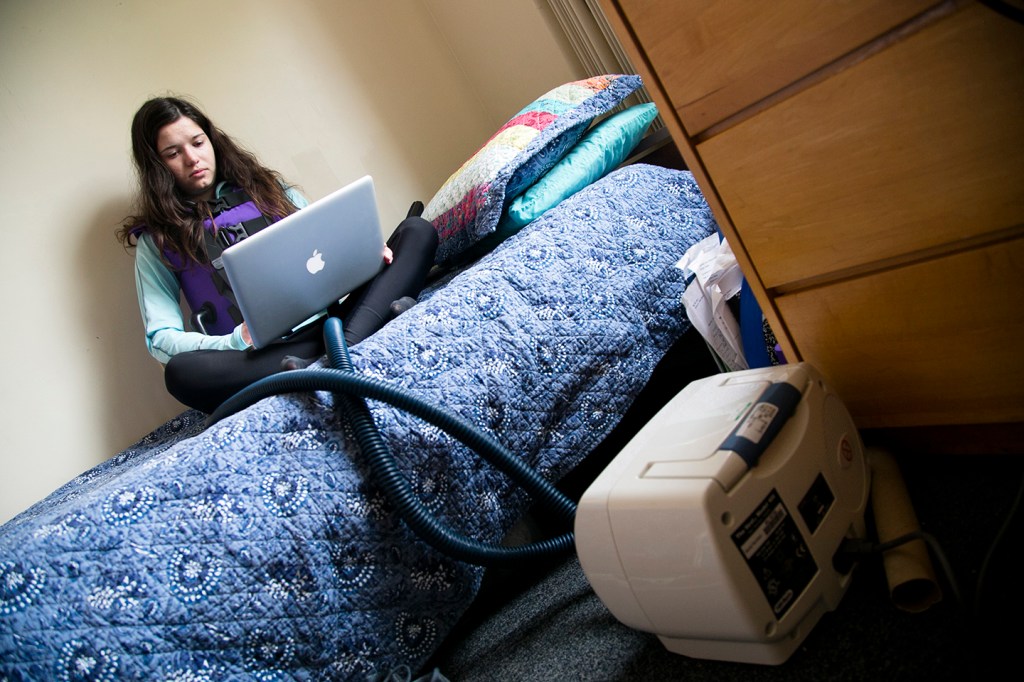
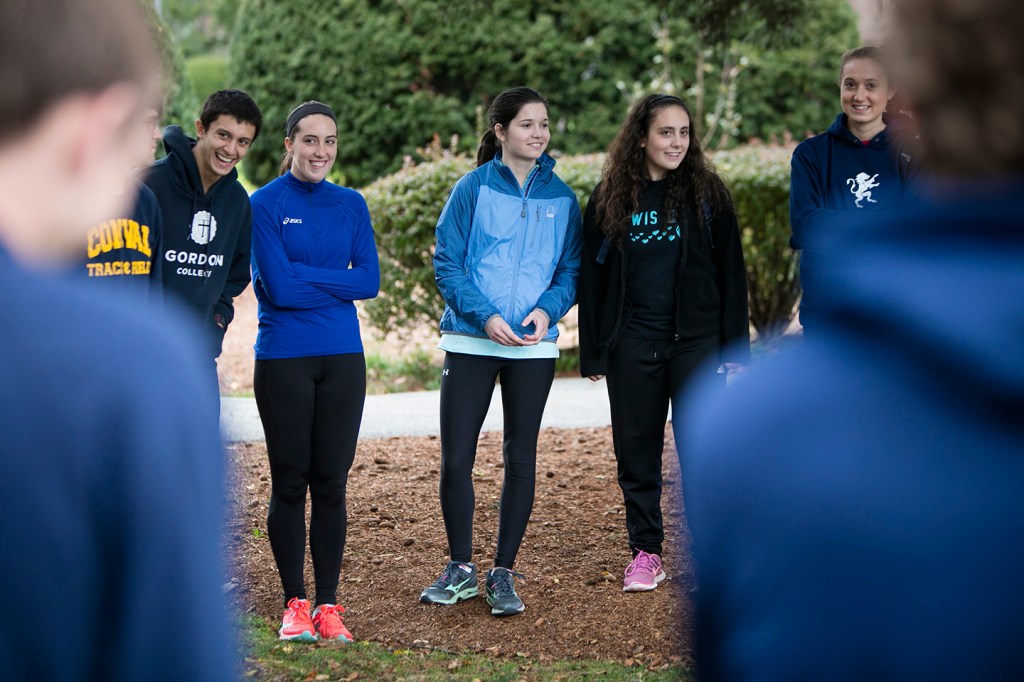
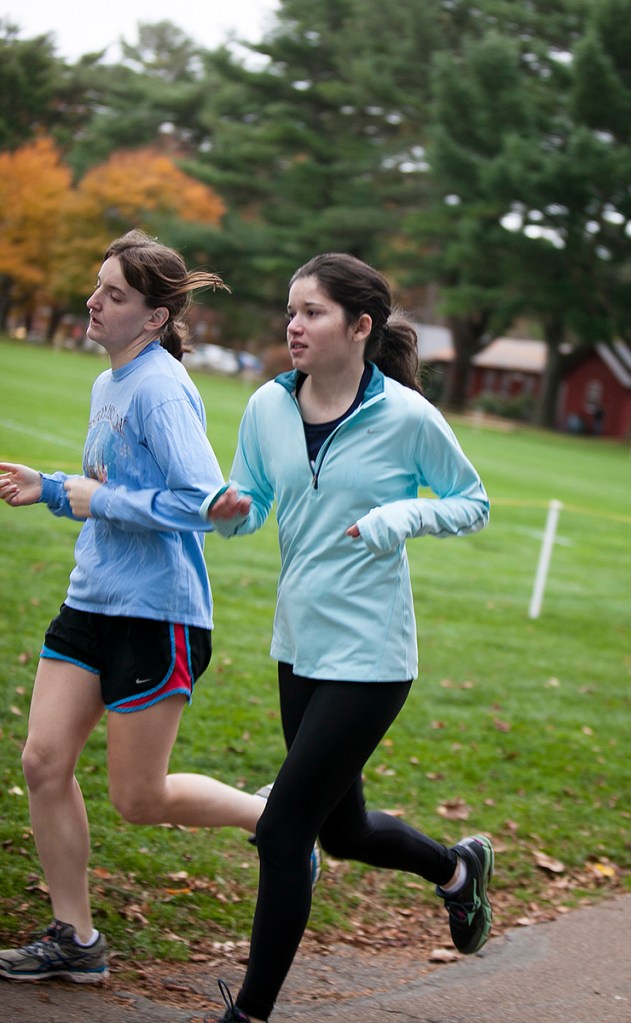
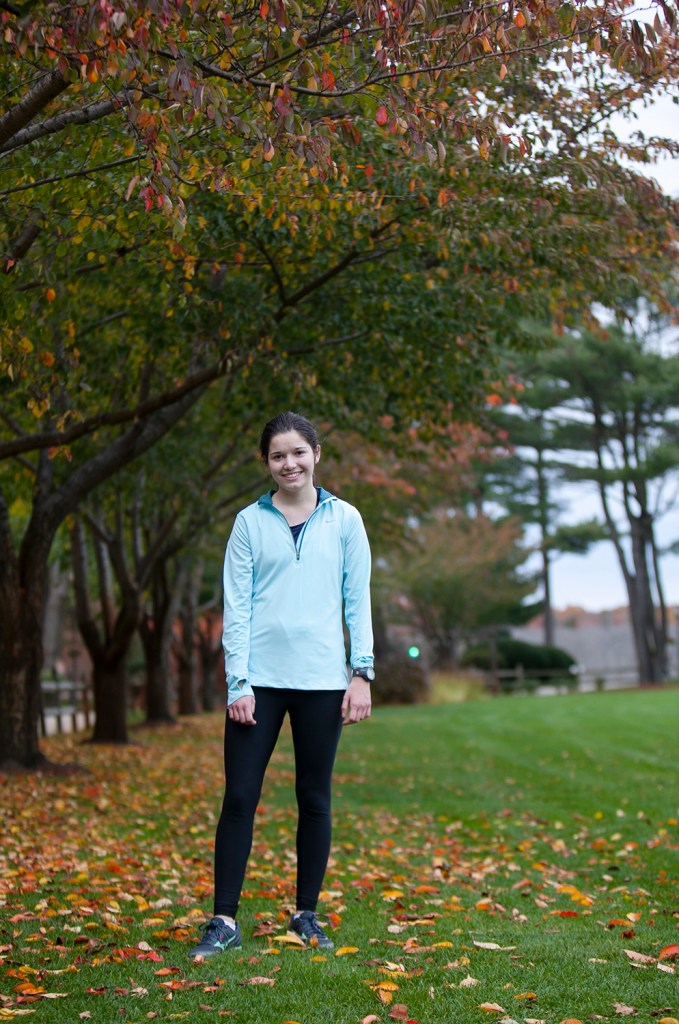

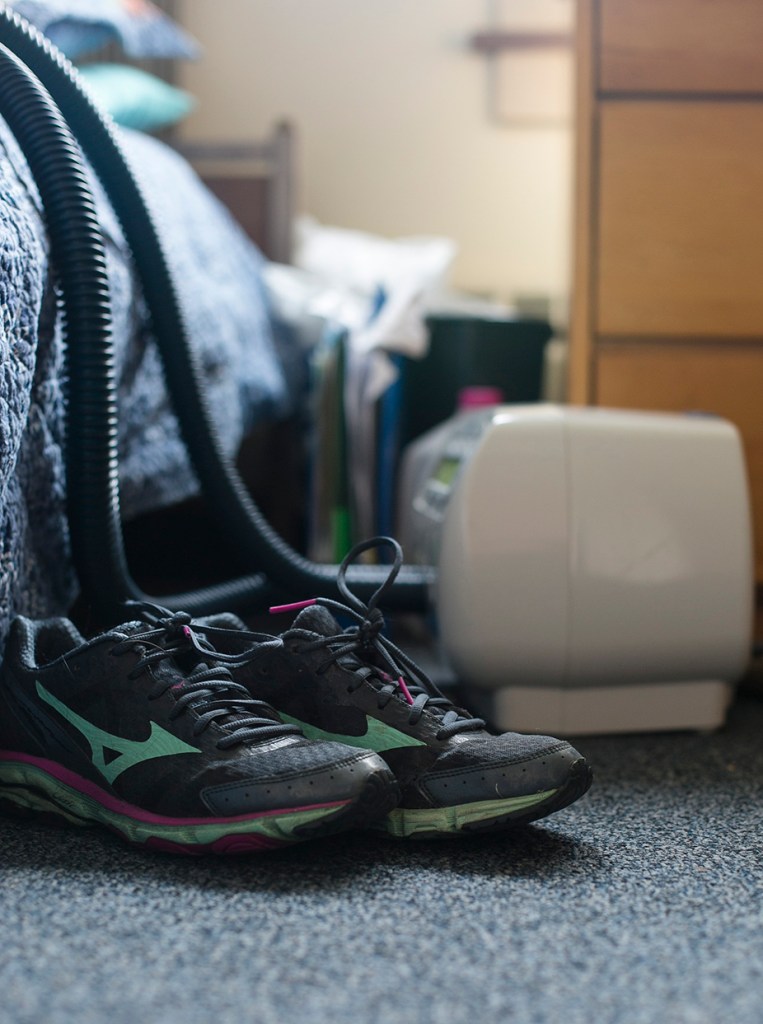
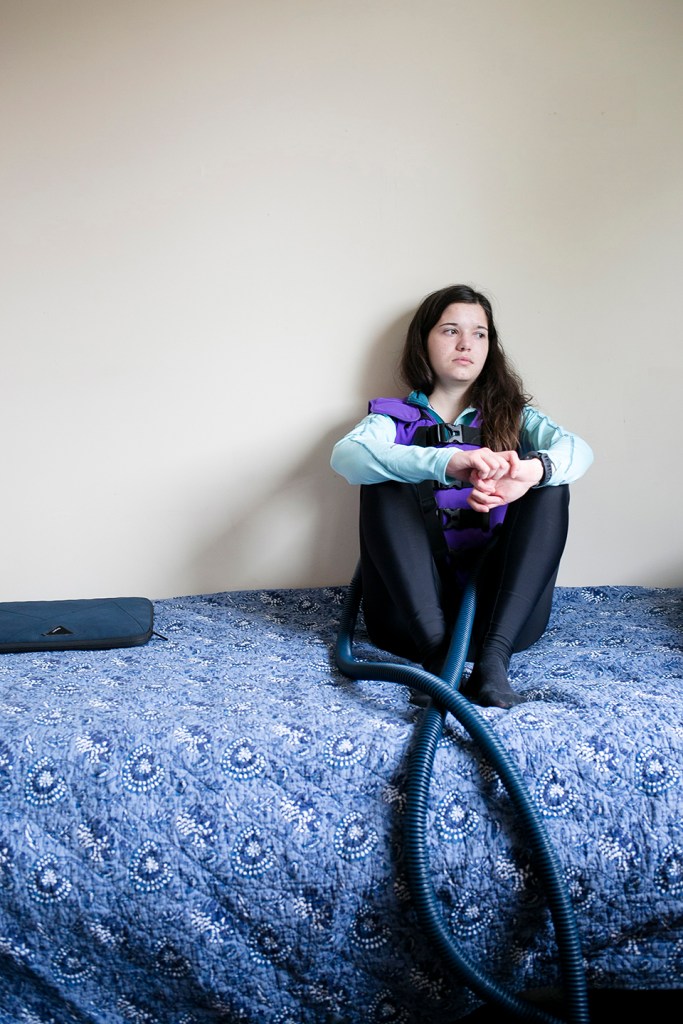

Success. Please wait for the page to reload. If the page does not reload within 5 seconds, please refresh the page.
Enter your email and password to access comments.
Hi, to comment on stories you must . This profile is in addition to your subscription and website login.
Already have a commenting profile? .
Invalid username/password.
Please check your email to confirm and complete your registration.
Only subscribers are eligible to post comments. Please subscribe or login first for digital access. Here’s why.
Use the form below to reset your password. When you've submitted your account email, we will send an email with a reset code.